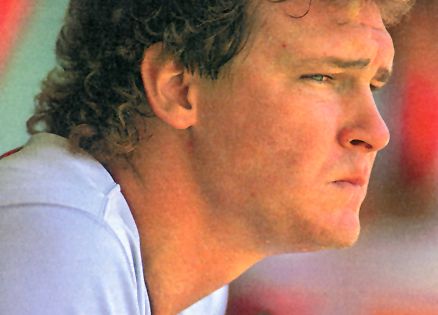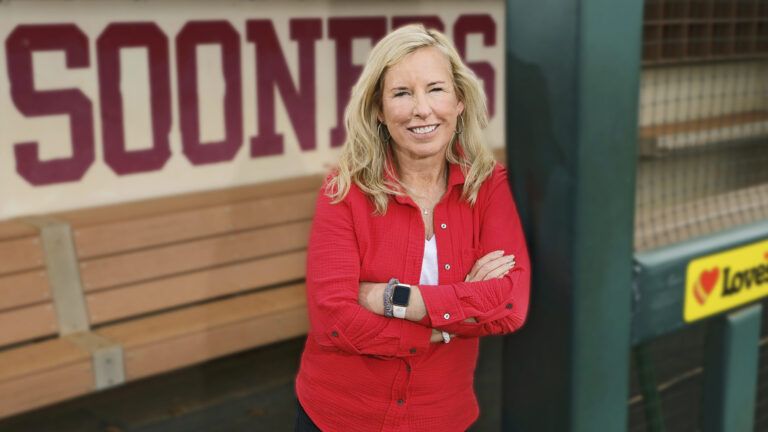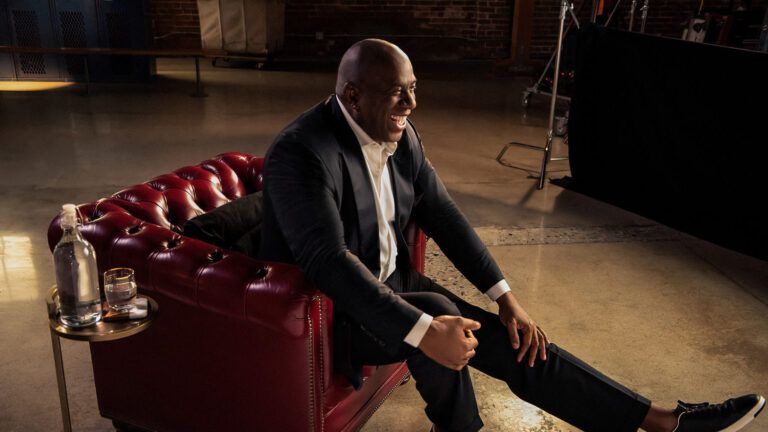I still don’t believe it.
Friday night, April 22, 1988. Busch Stadium. I’m in total shock. I’m sitting here in front of my locker in a nearly empty Cardinal clubhouse, half in and half out of my white home uniform with the famous St. Louis redbirds across the front. There are lots of surprises in life, and especially in baseball, but this is not one I saw coming. No way.
Earlier this evening we dropped a close game to the New York Mets, our archrivals in the National League’s tough Eastern Division. I came off the field feeling tired and a bit discouraged. It’s funny how much more tired you feel when you’ve lost. The hit I’d managed off Mets ace Ron Darling looked like a meager accomplishment in the face of our defeat.
Well, we’d just have to go out and get ’em tomorrow. Or so I thought.
As I was brooding on our loss—and the Cards’ slow start, someone tapped me on the shoulder. “Whitey wants to see ya.”
“Whitey” is Whitey Herzog, the legendary manager of the Cards and one of the shrewdest minds in baseball. I’ve played for Whitey my entire major league career, and being summoned to his office is still a little like being called into your dad’s study as a kid. Not everyone likes Whitey, but everyone respects him. I think he’s terrific. He’s taught me most of what I know about playing major league ball, transforming a shy kid from Lancaster, Pennsylvania, into an all-star second baseman with some pop in his bat and some speed on the bases. I’ve played in three World Series for Whitey and the Cards. I’ve always considered it a great honor to wear the St. Louis uniform.
Wonder what Skip wants, I mused wearily, making my way to the cramped little office behind a wall of lockers. Maybe a pep talk, though why, when I was having one of my hottest starts ever, a nine-game hitting streak and hitting safely in 11 of 12 games. Still, none of that mattered if we weren’t winning.
As soon as I stepped through the door I knew something big was up. General manager Dal Maxvill was standing behind Whitey, who was seated at his desk.
“Sit down, Tom,” said Whitey, pointing to a chair and running his hand across the snow-white brush cut for which he is nicknamed. Dal dosed the door quietly behind me as I lowered myself into the chair. I looked at Whitey and then at Dal questioningly. I felt my stomach start to churn. Oh, no, I thought. Not me!
“Tommy,” Whitey began in a tired, even tone, planting his elbows on the cluttered desktop and leaning forward, “you’ve been a fine player for me for nearly eight seasons. You’ve given the Cards everything we’ve asked of you. But…”
That “but” stopped my heart.
“But,” said Whitey, drawing a deep breath, “we’ve traded you to the Twins for Tom Brunansky.”
For an instant, time seemed to stand still. I kept trying to define and redefine the word trade in my head. I knew exactly what it meant: to exchange, to swap, to get rid of. I just wanted it to mean something different this one time. I wanted to make believe I was being asked my opinion of such a wild idea, not being told that it was a done deal.
Dal took over, earnestly trying to explain why the move was good for both the players and their teams, and how the Cards desperately needed a power-hitting right fielder like Brunansky. I didn’t hear most of what was being said. Whitey folded his arms across his chest and stared down at the clutter. My eyes rested on a picture on the wall behind him—my picture—hanging along with some of the other veterans of pennant-winning and world-championship Cardinal teams: shortstop Ozzie Smith, pitcher Bob Forsch, outfielder Willie McGee. I wondered if Whitey would take down my picture now.
“…the Twins, of course, will contact your agent about your contract…”
I couldn’t believe it. I didn’t want to believe it: no longer a Cardinal. I’d started my career here. I’d expected to finish it in St. Louis as well. I was in my prime as a ballplayer. Thirty-two years old. What about my friends on the team? Our locker-room Bible study group? Why? Why didn’t Whitey and the Cards want me anymore?
“I think you understand management’s position.” Dal was winding up. “The Twins would like you to report in time for tomorrow night’s game against the Cleveland Indians in Minneapolis. Good luck, Tom.”
I just wanted to get out of that office. Be by myself. Lick my wounds. Whitey was looking at me blankly. What emotions was he masking? I knew this wasn’t easy for him either. Almost as if in slow-motion replay, he stretched out his hand to mine. A dozen thoughts swirled in my head. How would I break the news to Kim and the kids back home in Lancaster? To my folks? What would I do with our condominium in St. Louis? Where would I live in Minneapolis? I didn’t know a soul there. How could I play baseball in anything other than a Cardinal uniform?
When I walked out of the skipper’s office a media horde was waiting. Amazing how news travels. I faced them in a daze. They posed all the expected questions: Are you sorry to leave St. Louis? (Yes.) Will you like playing for the Twins? (I hope so.) Are you bitter at the Cards, Tommy? (A little bit, I’m afraid, but I’m trying to understand.) Private moments can be so public when you’re a professional athlete.
So here I am, sitting listlessly in front of my locker. I mean, my former locker. Number 28. It’s nearly midnight. Everyone’s gone home. I’d better get moving. I start to pull off my red stirrup socks and the rest of my Cardinal uniform. It will be for the last time. It hurts.
Saturday morning. Here I am on the plane to Minneapolis. The flight is bumpy and seems long. I try to nap, unsuccessfully. I can’t get last night out of my head. The first thing I did after talking with Whitey and the press on Friday was call Kim back home in Lancaster. She and the boys, Aaron, seven, and Jordan, two, were planning to come to St. Louis for the season after school let out.
“Kim, we’ve been traded.” Pause. I could sense her shock through the wire. Kim started to cry softly. When a ballplayer is traded, his family is traded along with him. Kim was thinking about the other Cardinal wives she’d have to say goodbye to, their prayer group she’d helped start. Baseball wives feel like teammates. They form many of the same bonds and alliances among themselves as their husbands do in the clubhouse. Sometimes a trade is harder on a wife than on the player.
“We’re going to Minnesota.”
“Well,” Kim replied, catching her breath, “I know this must be God’s will, Tommy.”
I know it too, but that isn’t helping me much with the human side of things. I know I am part of God’s great plan, a plan that is infinitely more important than the little twists and turns in my baseball career, but my ego has taken a major broadside. All my life I’ve triumphed at sports. Back in Lancaster at Hempfield High I starred in track, baseball, basketball, football. You name it. If you could kick it, throw it, bat it, catch it or run after it, I was good. I was blessed. I signed with the Cards right out of school, and in a few years I was playing in the bigs. I’m not accustomed to being told to pack my bags. I’m always the guy everyone wants…
Saturday night. It’s late. My first game as a Twin was a disaster. I got to the park from the airport a few minutes before batting practice, just enough time to climb into the uniform waiting for me and shake a few hands. Veteran pitcher Bert Blyleven has my old Cardinal number, 28, so I had to settle for another. I was given 33. Interesting. A change in number didn’t inspire me, though. I went 0-for-4 at the plate and we lost to a streaking Cleveland.
Here in my room at a Holiday Inn near the Metrodome I am restless. Sleep is impossible. I page through my Bible, but concentration is elusive. I’m reading Romans but thinking about
Busch Stadium—I realize that all the truth I need is contained right here in this Book, but I just can’t seem to get my sense of rejection pushed out of the way. I call Kim. Aaron gets on the phone. He’s crying.
“Daddy, why aren’t you a Cardinal anymore?”
Sunday. Another fruitless day at the plate, another sleepless night in my hotel room. Will things ever get better?
Tuesday. I’m feeling desperate. I’m batting .000 in the American League. I couldn’t even get a hit tonight in the series opener against lowly Baltimore, which is mired in the worst losing skid in league history. I try to force myself to sleep but just end up tossing and turning.
Finally I get out of bed and pick up the Word again. What would the ancient Hebrews have thought of baseball? Of batting averages and trades? Well, there was Joseph. Joseph was traded. Traded by his brothers for 20 shekels. Imagine how he must have felt. At least I was traded for someone of equal value; I certainly wasn’t a slave. Joseph too lost something he wore proudly, perhaps too proudly, his many-colored coat, just as I lost my Cardinal uniform. And I guess you can say I felt as if I had been cast into a pit of sorts: I mean, the enclosed Metrodome is hardly the grand open-air ballpark that Busch Stadium is.
Joseph’s story lifts me. I see how he turns his rejection into triumph and learns a lesson in humility and forgiveness. But first Joseph has to face up to his rejection, accept it as a fact of life. We all face rejection at one time or another. The greatest rejection of all was Christ’s crucifixion upon the cross. He was traded for 30 pieces of silver. What is my infinitesimal suffering compared to that? My sense of loss compared to His? Christ triumphed over rejection by rising from the dead. We too must triumph over rejection in our daily lives. Rejection, the Bible tells me, is a prelude to triumph.
Wednesday. Tonight I got a hit. Finally. Four, in fact. I felt as if a huge weight lifted. The guys in our dugout practically gave me a standing ovation. And I’m feeling more comfortable at second base in the Dome. It’s a pretty good park after all. Getting to know my new teammates helps too. As it turns out, shortstop Greg Gagne, my partner on double plays, is a Christian.
Maybe things are falling into place, I’m beginning to like the Twin Cities. The fans are incredible. Today I got a call from a local Christian group welcoming me to Minnesota. It still hurts a little to think about the trade. But dwelling on rejection (the Cards don’t want me and all that) is no good. I’ve got to get over it and go to work on the baseball diamond like the veteran I am. In this game your time in the sun is very short. You might as well relax and enjoy it. Besides, Kim pointed out something important: The Twins gave up a good player because they wanted me. I hadn’t thought much about that. I can see now that the trade wasn’t personal. Baseball is a business as well as a sport, and the Cards’ decision was a business decision, an even exchange, one good player for another.
Another thing. In ’85 when the Cards won the National League Championship, there was a pretty active group of us Christians on the club. In the last few years we’ve kind of dispersed. Ricky Hotton pitches for the White Sox. Andy Van Slyke went to Pittsburgh. Todd Worrell is still a Card. You know, maybe God is scattering us the way He scattered the first apostles to spread the Word.
I could get traded again any day now. Baseball isn’t permanent. But my Christianity is. That’s the important part. You don’t get traded off God’s team. Everyone’s a starter.






